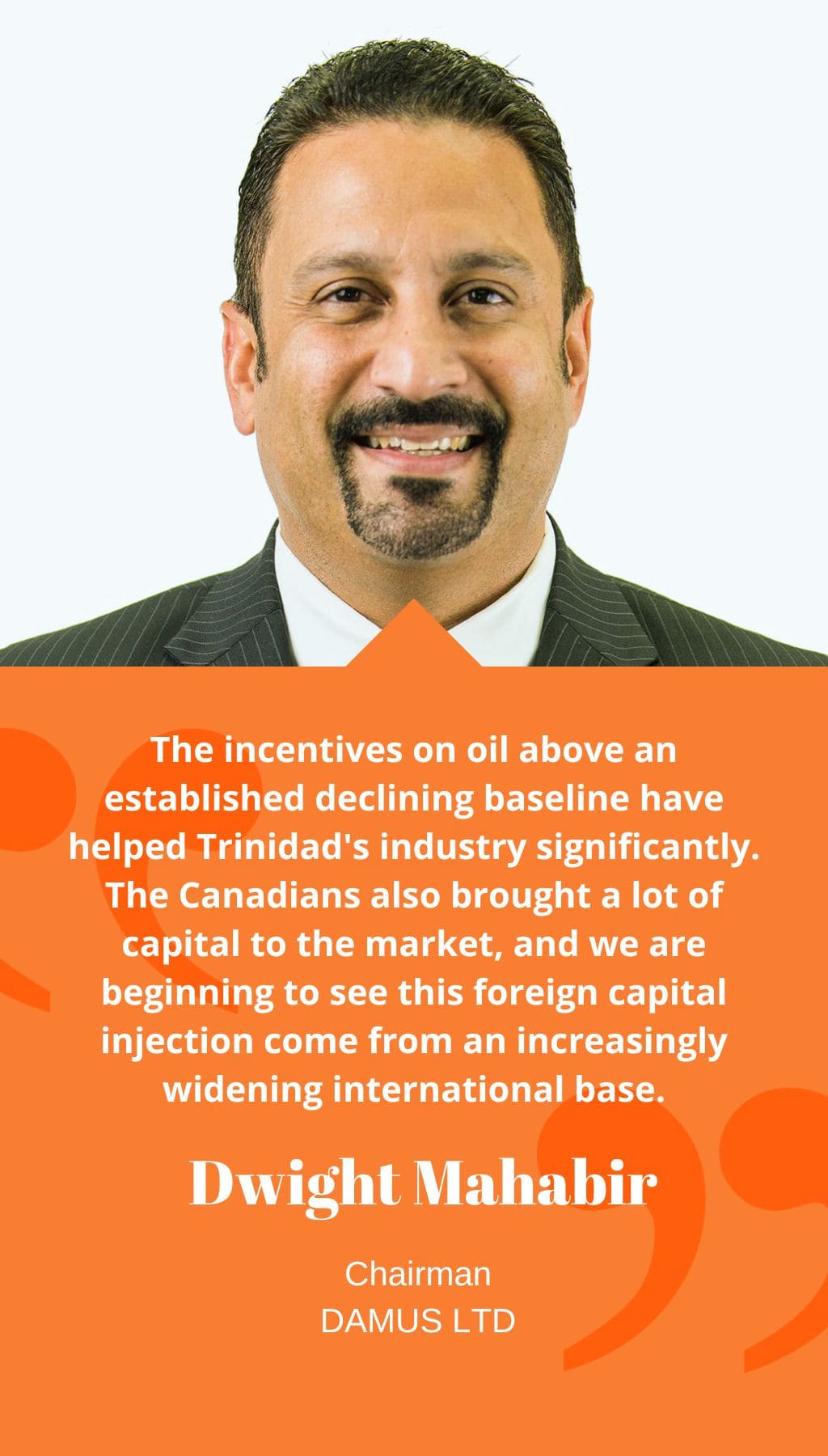
- Trinidad & Tobago | 16 April 2013

Can you provide an overview of the history of Damus Group, one of the larger and more diversified family-owned companies in Trinidad?
Damus Group is a private company founded in 1973. Initially, the company operated as a mechanical contractor, primarily focusing on energy projects across the value chain, including companies such as BP, Petrotrin, and Trinmar. The company has been involved in maintenance work on offshore platforms and in heavy construction work in the mid and downstream sectors. Damus Group is the primary mechanical contractor for the power plant in La Brea. However, as the work in the heavy construction industry declined, the company is adapting its business model.
Damus Group’s strengths include piping prefabrication and installation, tankage, laying marine pipelines, painting, and scaffolding. Over the last decade, the company generated about 60% of its revenues from heavy construction and about 40% from other services. Going forward, the company expects greater business opportunities from the upstream sector.
Can you elaborate on Damus Group’s involvement in Petrotrin’s Lease Operatorship program for small onshore blocks?
Damus Group was one of the main operators in the Lease Operatorship program since its inception. The company held two leases and three farm-out blocks and conducted its drilling and production. Five years ago, Damus Group partnered with a Canadian firm, but due to the high-risk nature of the acreage, the program was not successful, and the company sold the assets to Territorial Services.
If the right opportunity presented itself, Damus Group would consider entering into lease operatorship projects again. However, it is believed that Trinidad’s onshore space is going to be divided into larger blocks that require greater investment, and it will primarily be seeing mid- to large-sized international companies exploiting them, and a decrease in the importance of the Lease Operatorship program.
What have been some of the challenges and successes of the Lease Operatorship program in your opinion?
The Lease Operatorship program was initiated because Petrotrin had significant acreage that it could not exploit on its own. Junior players could be given small blocks, helping to quickly inject capital into the industry. Onshore programs are critical for both employment and for putting idle assets to work. The average well onshore produces merely 68 boe/d. The refinery processes about 160,000 barrels of oil, but it imports oil to do so; only 55-60,000 barrels are locally sourced because the refinery cannot process the very light oil from Trinidad’s east coast. Therefore, it has also been very important to reduce the costs of import. The Lease Operatorship program has yielded about 6,000 to 8,000 barrels of oil each year. It has been very important for creating wealth and generating employment and taxes in Trinidad.
Has the Lease Operatorship program changed its structure to continue providing new types of incentives for new companies?
The Lease Operatorship program has undergone significant changes over the last 20 years. The offerings have diminished over the last few years. The industry also started leasing only the existing perforated zones. The Lease Operatorship offered incentive programs, including royalty holidays, to facilitate collaboration between Petrotrin and smaller players. The incentives on oil above an established declining baseline have helped Trinidad’s industry significantly. The Canadians also brought a lot of capital to the market, and we are beginning to see this foreign capital injection come from an increasingly widening international base.














